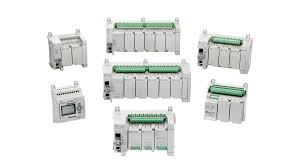The Power of ABB PLC Control Modules in Industrial Automation
The Power of ABB PLC Control Modules in Industrial Automation
In the world of industrial automation, ABB PLC control modules stand out as a cornerstone of modern process control systems. With a combination of cutting-edge technology, modular design, and high reliability, ABB’s programmable logic controllers (PLC) are integral to optimizing operations across a wide range of industries. From industrial robots and machine control to distributed control systems and field devices, ABB PLC control modules offer unmatched versatility and efficiency.
This blog post will explore the critical components of ABB PLC control modules, their features, applications, and how they contribute to the advancement of automation systems in various industries.

What is an ABB PLC Control Module?
A PLC (Programmable Logic Controller) is a digital computer used for automation of industrial processes, such as controlling machinery or factory assembly lines. ABB PLCs are among the most reliable and widely used in the industry due to their flexibility, ease of integration, and support for various communication protocols.
The PLC control module is the core component that houses the controller and supports interaction with other industrial equipment. The modular design of ABB PLC control systems ensures easy expansion, allowing users to add more I/O (Input/Output) modules and peripherals to adapt to growing demands. These systems are programmed through specialized software and can be connected to SCADA systems for advanced data monitoring and control.
Key Features of ABB PLC Control Modules
- Modular Design
ABB PLC control modules are built with a modular design, which allows for flexible configuration and scalability. With modular I/O modules, users can customize their system to meet the specific needs of their application, whether it’s for controlling a single machine or a complex automated process. - High-Speed Control
ABB PLCs are renowned for their high-speed control capabilities, essential for industries that require fast and precise automation, such as robotics and assembly line operations. These controllers can handle large volumes of data with minimal delay, ensuring real-time control over industrial processes. - Communication Protocols and Networking
One of the major advantages of ABB PLC control modules is their support for a wide range of communication protocols, including Modbus, Ethernet/IP, and Profibus. This allows seamless data exchange between PLCs, HMI interfaces, and other industrial equipment, creating a robust and interconnected automation system. - Fieldbus Integration
ABB PLCs are designed to integrate easily with fieldbus systems, allowing for efficient communication between the PLC and field devices like sensors, actuators, and motors. Fieldbus systems are essential for distributed control, enabling real-time data collection and precise control of industrial processes. - I/O Modules and Expandability
Input and output modules are the building blocks of a PLC system. ABB PLC control modules can be easily expanded with additional I/O modules, enabling users to control more devices and gather data from a broader range of sensors. The ability to add remote I/O modules allows for greater flexibility and easier integration into complex industrial networks. - Reliability and Safety
ABB PLC control modules are designed with high reliability in mind. With robust hardware and advanced safety features, these PLCs can operate in demanding environments where uptime is critical. Safety functions, such as emergency stop and fault detection, ensure that the system operates securely and that any issues are quickly identified and addressed. - User-Friendly Programming Software
Programming ABB PLC control modules is made easier with intuitive software that supports graphical programming languages such as ladder logic and function block diagrams. The software interfaces seamlessly with HMI systems, making it simple for operators to monitor and control processes in real time. - Real-Time Control and Data Monitoring
With ABB PLC control modules, industries can achieve real-time control over their processes. By connecting the PLC to a SCADA (Supervisory Control and Data Acquisition) system, users can monitor and control large-scale industrial operations remotely. This enables advanced data acquisition, fault detection, and efficient system maintenance.
Applications of ABB PLC Control Modules
ABB PLC control modules are used across various industries to automate processes, improve efficiency, and ensure the safety and reliability of operations. Some of the key applications include:
1. Industrial Robotics
Industrial robots, used in manufacturing and assembly lines, rely heavily on PLC control systems to execute complex movements with precision. ABB PLCs are ideal for controlling robots due to their high-speed control, real-time feedback, and ease of integration with other industrial equipment. The reliability of ABB PLCs ensures that robotic systems can operate with minimal downtime, maximizing productivity.
2. Machine Control
In industries like automotive manufacturing, food processing, and packaging, machine control is critical. ABB PLC control modules are used to manage machines, from controlling the motors that drive production lines to managing sensors that monitor product quality. The scalability of ABB PLCs makes them suitable for controlling everything from simple machines to complex multi-machine systems.
3. Process Control Systems
ABB PLCs are widely used in process control applications, including oil and gas, chemical processing, and water treatment plants. These industries require precise control of processes like temperature, pressure, and flow rate. ABB PLCs, with their real-time control and advanced data acquisition capabilities, provide operators with the tools they need to maintain optimal performance.
4. Building Automation
In building management, ABB PLC control modules are used to automate lighting, HVAC (heating, ventilation, and air conditioning) systems, and security systems. These systems are often integrated with other building automation technologies, such as energy management systems, to ensure energy efficiency and ease of operation.
5. Energy Management and Distribution
ABB PLCs play a crucial role in energy management and distribution systems, where accurate control over electrical loads and monitoring of energy consumption is essential. These PLCs are integrated into grids and substations to ensure optimal energy distribution and to monitor for faults or irregularities in the system.
The Future of ABB PLC Control Modules
As industries continue to embrace Industry 4.0, the role of PLC control modules, particularly those from ABB, will only become more critical. With advancements in artificial intelligence, machine learning, and the Internet of Things (IoT), future ABB PLCs will likely feature even more intelligent control systems capable of learning from data and adapting in real-time.
Moreover, the integration of ABB PLCs with cloud-based systems will enable remote monitoring and control of industrial processes, offering even greater flexibility and efficiency. As automation becomes more advanced, the ability to connect ABB PLCs to an industrial network will be paramount in ensuring seamless communication and operational efficiency across all aspects of the production process.
Conclusion
ABB PLC control modules are integral to modern industrial automation. Their modular design, high-speed control, scalability, and reliability make them ideal for a wide range of applications. Whether it’s machine control, process control, industrial robotics, or energy management, ABB PLCs provide the precision, safety, and flexibility needed for optimizing industrial processes.
By supporting a wide range of communication protocols, including fieldbus systems, ABB PLCs ensure seamless integration into complex industrial networks. With user-friendly programming software and real-time control capabilities, these PLCs empower operators to achieve the highest levels of efficiency and productivity.
As the industrial automation landscape continues to evolve, ABB PLC control modules will remain a cornerstone of innovation, helping industries achieve greater operational excellence and unlock the potential of smart automation.
